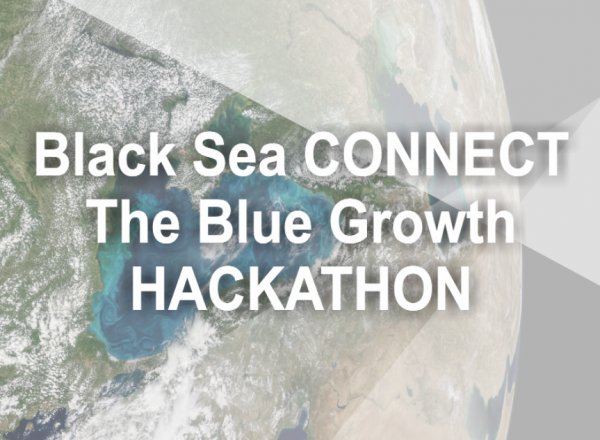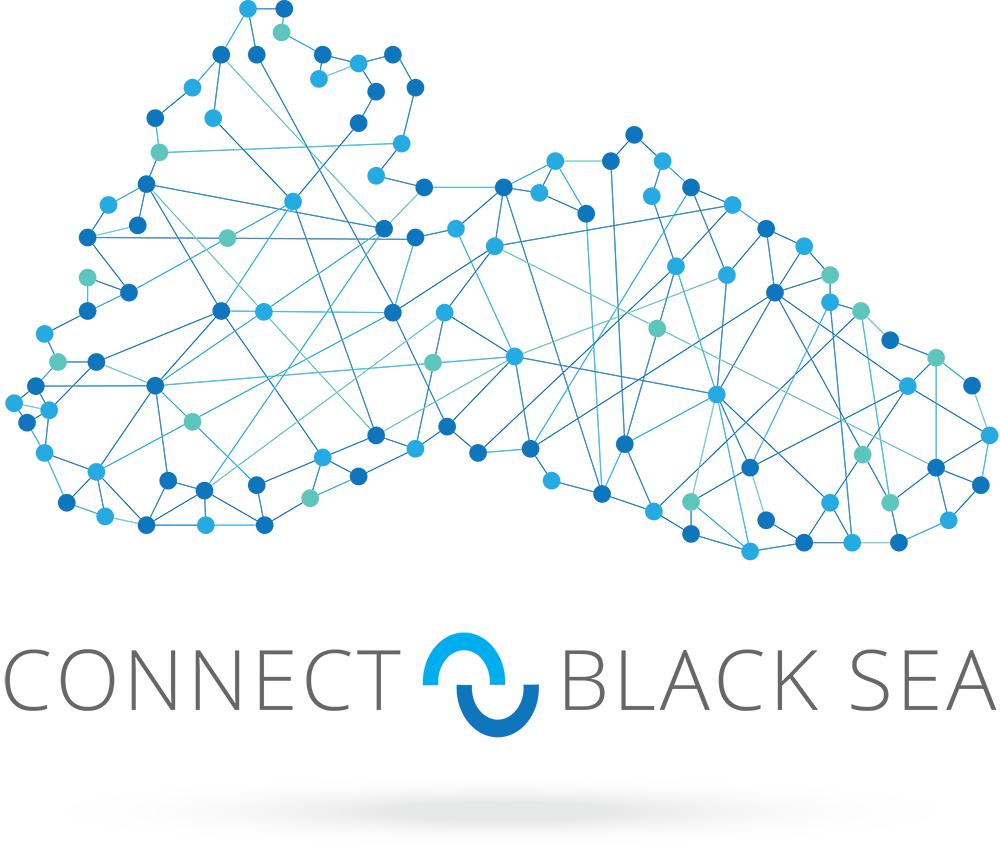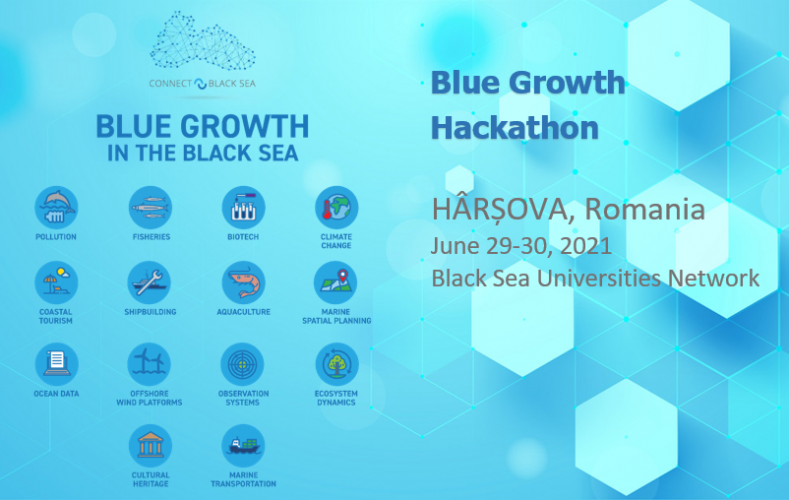The Blue Growth Hackathon
The Blue Growth Hackathon is a 24-hour online event organized by the Black Sea Universities Network, in collaboration with Hârșova City Hall (Romania), in an online format within the scope of Horizon 2020 funded Black Sea CONNECT CSA.
During the event that is dedicated to the identification of innovative solutions for the sustainable development of Hârșova City, the participants presented their solutions focusing on the establishment of a process of creative ideation for a particular problem related to the “Blue Growth” concept and challenges addressed by the Black Sea Blue Growth Initiative’s Strategic Research and Innovation Agenda.
The event is divided into 2 sections:
- Opening and keynote speeches (Presenting challenges and hackathon theme)
- Teams forming and working (data exploration, idea generation, and problem refinement, hacking, and building).
The competition focused on the establishment of a process of creative ideation for solving particular problems related to the “Blue Growth” concept and challenges addressed by the Black Sea Blue Growth Initiative’s Strategic Research and Innovation Agenda, as an instrument in focusing international attention on achieving sustainable development, with an emphasis in safeguarding our natural resources for future generations.
The participants benefited from mentoring from experts of the evaluation panel with extensive experience, in order to find concrete solutions to a series of real needs on a daily basis in the marine and maritime sector, in a multidisciplinary manner.
The competition teams included students from “Vasile Alecsandri” University of Bacău, “Dunărea de Jos” University of Galați and “Ovidius” University of Constanța. The participants presented their solutions, and following the jury’s deliberations, the team from “Vasile Alecsandri” University of Bacau was declared the winner of the Blue Growth Hackathon.
The winning team proposed a Unique Interdisciplinary Science Center in Harsova, a solution for presenting the anthropogenic pressures on the Danube River Basin, by using multimedia technologies, dioramas, stands, and ways of interaction and involvement of visitors in activities such as “Citizens` Science”: attractive and recreational games for children and other associated activities.
Their ideas were highly welcomed by the Mayor of Hârșova City and the possibilities of formulating project proposals based on the ideas of the winning team will be developed for different funding sources.


